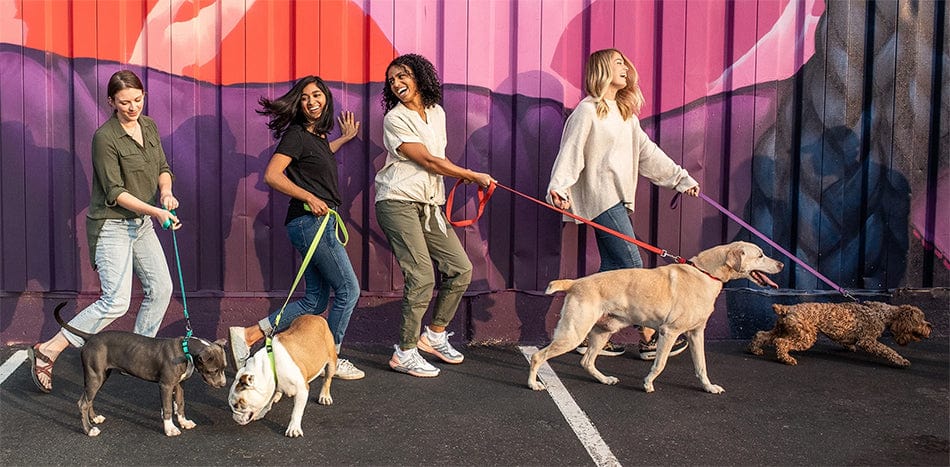Your cart is empty. Let's fix that!


Whether you’ve just adopted an older dog, or you’re looking to teach your resident floof a few new tricks, there is no reason that mature dogs can’t learn new tricks. We have old cliches to blame for the stigma that older dogs are harder to train, but it can certainly be done. So, how do you teach an old dog new tricks? The most important tools that you will need are patience, treats, and the tips below.
1. Keep it real
It’s crucial to have realistic expectations. Older dogs may not physically be able to perform the same stunts as younger dogs, like jumping up to catch a frisbee. Consider your dog’s physical health before you start training them. However, less physically demanding tasks like potty training, sitting, staying, or paw shakes can absolutely be taught at any age.
2. Keep it short and sweet
Since older dogs get worn out easier than younger dogs, you can’t do all day training sessions with them. Your dog will tell you when they’re tired by lifting a paw, yawning, or drooping their ears. Keep an eye out for these signals and don’t push them past this point.
3. Keep it simple
You may have a laundry list of tricks you’d like to teach fido, but it’s important to start with just one or two. Trying to teach them multiple tricks at once can be overwhelming and distracting.
4. Keep it calm
Dogs are often more motivated to learn new things if new stimuli are part of the deal. But first, older dogs need to stay calm as new humans and other dogs cross their path.
5. Keep it new
Only give dogs treats for learning new tricks, not as an attempt to distract them from bad behavior. It’s much easier to teach your dog a new skill than it is to un-train bad behavior, like barking or jumping. By using treats as distractions, your dog can misinterpret this as a reward for their bad behavior.
6. Keep it positive
No matter what stage of life your trainee is, you should always use positive reinforcement training. These low calorie treats support joint health and are paw-fect motivators for training older dogs! Regardless of age, all pups can benefit from treats with DHA and Omega 3 fatty acids to assist in their brain development.
7. Keep it active
When dogs have too much energy, they can act out and become easily distracted. Even if you can’t take your dog outside, they still need regular exercise for their mental and physical health. This guide will show you how to teach a dog tricks while keeping them active indoors!